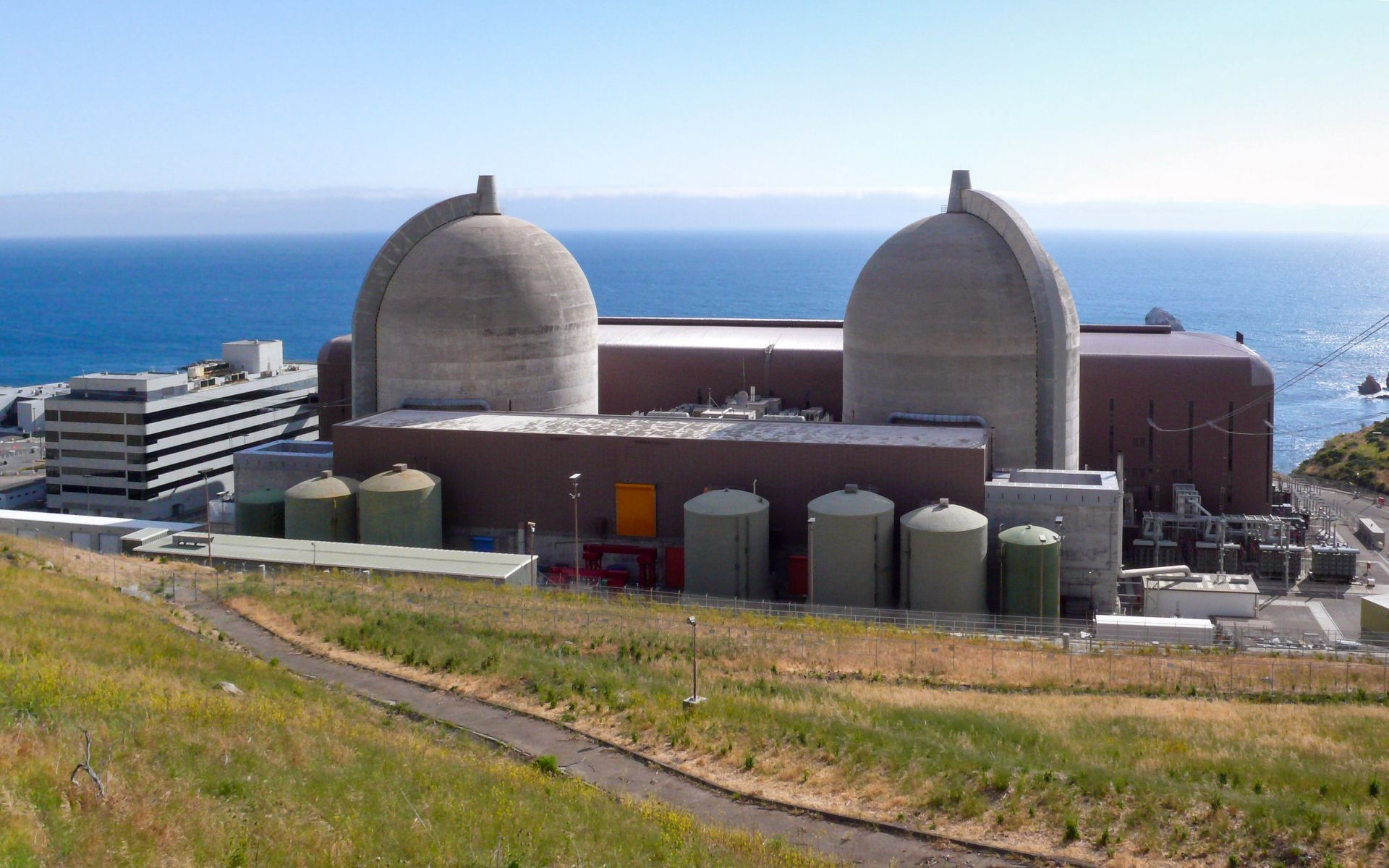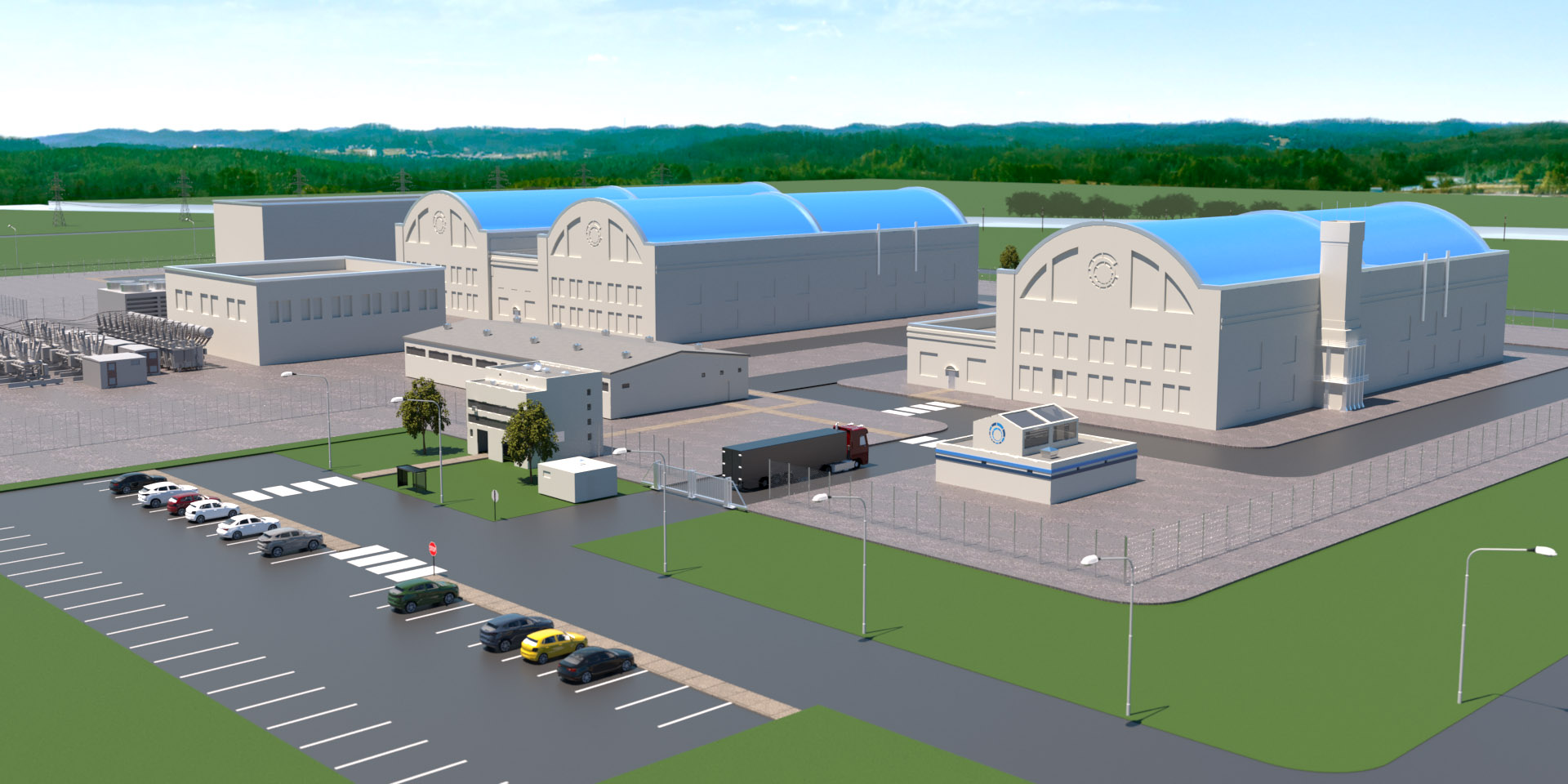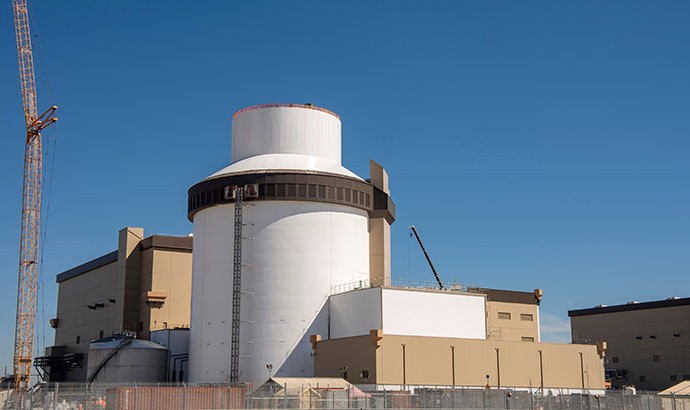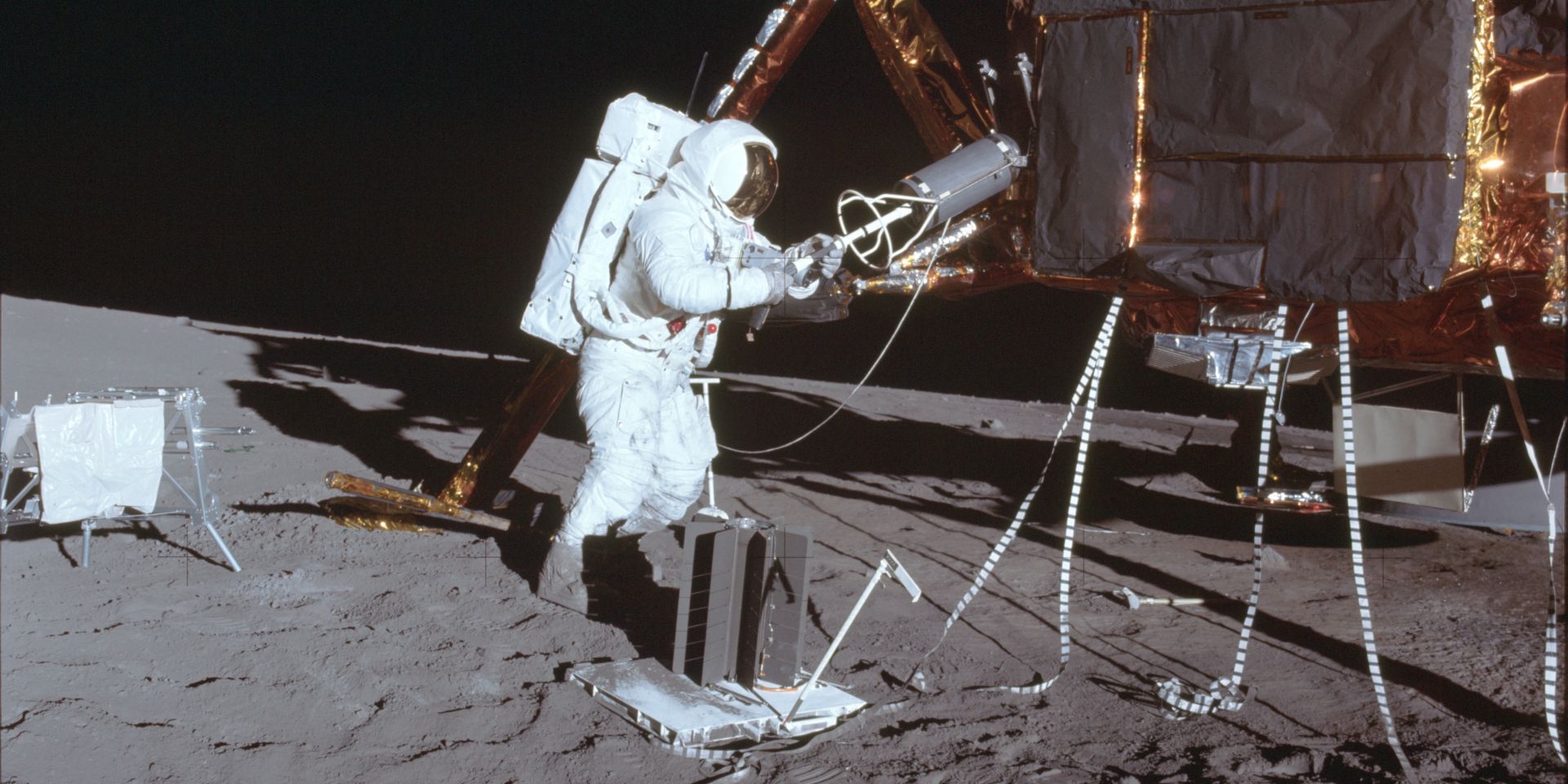Energy Fuels’ White Mesa Mill in southeastern Utah is the only operating conventional uranium mill in the United States. (Photo: Energy Fuels)
The U.S. Senate approved April 30—by unanimous consent—a bill banning the importation of Russian uranium. The House of Representatives passed the bill, House Resolution 1042, last fall, and now President Biden is expected to sign it into law.
Diablo Canyon nuclear power plant. (Photo: PG&E)
A review from the Ninth Circuit Court of Appeals this week denied a challenge to the Diablo Canyon nuclear plant’s license renewal application extension granted by the federal government.
In late 2023, the Nuclear Regulatory Commission agreed to formally docket the California plant’s request to extend plant operations beyond the current license expiration dates of 2024 and 2025 for the two respective units.
Concept art for a Hermes plant. (Image: Kairos Power)
The Nuclear Regulatory Commission is seeking input on its draft environmental assessment and draft finding of no significant impact for Kairos Power’s application to build the Hermes 2 test reactor facility in Oak Ridge, Tenn.
Vogtle's Unit 4 achieves a milestone. (Photo: Georgia Power)
Unit 4 at Georgia Power’s Plant Vogtle has entered commercial operation, the company announced today. The new unit can produce enough electricity to power an estimated 500,000 homes and businesses, according to the company.
Concept art of Framatome's expansion of its Mill Ridge Road facility in Lynchburg, Va. (Image: Framatome)
An official groundbreaking last week at Framatome’s Mill Ridge Road facility, in Lynchburg, Va., marks the start of a $50 million expansion and an eventual addition of 500 employees, according to the nuclear company.
April 26, 2024, 3:03PMNuclear NewsAlex Gilbert, Harsh S. Desai, and Jake Matthews Astronaut Alan Bean prepares fueling of a Pu-238 radioisotope thermoelectric generator during the Apollo 12 mission to the lunar surface. (Photo: NASA)
In early 2006, a start-up company launched a small rocket from a tiny island in the Pacific. It exploded, showering the island with debris. A year later, a second launch attempt sent a rocket to space but failed to make orbit, burning up in the atmosphere. Another year brought a third attempt—and a third failure. The following month, in September 2008, the company used the last of its funds to launch a fourth rocket. It reached orbit, making history as the first privately funded liquid-fueled rocket to do so.
The digital control system was installed at Linglong One earlier this month. (Photo: CNNC)
Earlier this month, the first digital control system was put in place at Linglong One, a small modular reactor demonstration project being built at the Changjiang nuclear power plant in Hainan Province. This is the world’s first land-based commercial SMR and is controlled by China National Nuclear Power Co. Ltd., a subsidiary of the China National Nuclear Corporation (CNNC).
Left: Tsoulfanidis as a freshman, at age 17, at the University of Athens. Right: Nicholas Tsoulfanidis today.
We welcome ANS members who have careered in the community to submit their own Nuclear Legacy stories, so that the personal history of nuclear power can be captured. For information on submitting your stories, contact nucnews@ans.org.
As an undergraduate I studied physics at the University of Athens. I entered the university in 1955 after successfully passing a national exam (came up fourth in a field of about 700 candidates). Upon graduation and finishing my mandatory two-year military service, the plan was to teach physics either in a public high school or as a tutor for a private for-profit institution, preparing high school students for the national exam.
A bright flash of light from a FuZE (Fusion Z-pinch Experiment) plasma. (Photo: Zap Energy)
Zap Energy announced April 23 that it has reached 1-3 keV plasma electron temperatures—roughly the equivalent of 11 to 37 million degrees Celsius—using its sheared-flow-stabilized Z-pinch approach to fusion. Reaching temperatures above that of the sun’s core (which is 10 million degrees Celsius temperature) is just one hurdle required before any fusion confinement concept can realistically pursue net gain and fusion energy.
A rendering the X-energy fuel fabrication facility planned for construction in Oak Ridge, Tenn. (Source: X-energy)
Advanced reactor company X-energy has been awarded $148.5 million in tax credits under the Inflation Reduction Act for construction of its TRISO-X fuel fabrication facility in Oak Ridge, Tenn.















